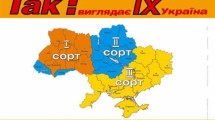Even when pressed by the demands of inner truth, men do not easily assume the task of opposing their government’s policy, especially in time of war. Nor does the human spirit move without great difficulty against all the apathy of conformist thought within one’s own bosom and in the surrounding world.
Martin Luther King, Jr.
“Beyond Vietnam,” April 4, 1967
Abstract
Martin Luther King, Jr.’s anti-war speech, “Beyond Vietnam,” is a noteworthy example of deliberation by dissent from the margins. Attention is given to the formation of his moral argument from similitude, its foundation in metaphor and archetypal imagery, and how it shifted perspective to enable the introduction of alternative lines of argument. King’s argumentation, as it worked rhetorically toward making the war debatable, exhibited key features of deliberative dissent, including catachresis, contingency, perspective, and incommensurability.
Similar content being viewed by others
Notes
All excerpts from King’s speech, “Beyond Vietnam,” are drawn from King (1967).
Recounting his decision to speak out, King (1998, pp. 334–335) wrote that he hesitated at first because President Johnson declared his willingness “to negotiate, to talk peace, and thus end the death and destruction”. Eventually, after measuring “promising words of peace against the baneful, escalating deeds of war,” King discerned that his country “was only talking peace but was bent on military victory”.
References
Antczak, F.J. 1993. When “silence is betrayal”: An ethical criticism of the revolution of values in the speech at Riverside church. In Martin Luther King, Jr., and the sermonic power of public discourse, ed. C. Calloway-Thomas and J.L. Lucaites, 127–146. Tuscaloosa: The University of Alabama Press.
Bryan, W.J. 1916. The proposal for a league to enforce peace—negative, 245–259. Documents of the American Association for International Conciliation. New York: American Association for International Conciliation.
Burke, K. 1969. A grammar of motives. Berkeley: University of California Press.
Burke, K. 1984. Permanence and change: An anatomy of purpose, 3rd ed. Berkeley: University of California Press.
de Certeau, M. 1997. The capture of speech and other political writings, eds. L. Giard, Trans. T. Conley. Minneapolis: University of Minnesota Press.
Daniel, S.H. 1990. Myth and modern philosophy. Philadelphia: Temple University Press.
Darby, H.E., and M.N. Rowley. 1986. King on Vietnam and beyond. Phylon 47 (1): 43–50.
Dionisopoulos, G.N., V.J. Gallagher, S.R. Goldzwig, and D. Zarefsky. 1992. Martin Luther King, the American dream and Vietnam: A collision of rhetorical trajectories. Western Journal of Communication 56 (2): 91–107.
Fairclough, A. 1984. Martin Luther King Jr. and the war in Vietnam. Phylon 45 (1): 19–39.
Halberstam, D. 1983. Martin Luther King, American preacher. Esquire 100 (6): 306–312.
Harding, V. 2008. Martin Luther King: The inconvenient hero, rev ed. Maryknoll, NY: Orbis Books.
Jasinski, J., and J.M. Murphy. 2009. Time, space, and generic reconstitution: Martin Luther King’s “A time to break silence” as radical jeremiad. In Public address and moral judgment: Critical studies in ethical tensions, ed. S. Parry-Giles and T. Parry-Giles, 97–126. East Lansing: Michigan State University Press.
King, M.L., Jr. 1967. Beyond Vietnam. American Rhetoric: Online Speech Bank. Retrieved January 21, 2019 from https://www.americanrhetoric.com/speeches/mlkatimetobreaksilence.htm.
King, M.L., Jr., 1998. The autobiography of Martin Luther King, Jr., ed. C. Carson. New York: Warner Books.
Kock, C. 2017. Deliberative rhetoric: Arguing about doing, ed. H.V. Hansen. Windsor, Canada: University of Windsor.
Laclau, E. 2014. The rhetorical foundations of society. London: Verso.
Lucks, D.S. 2015. Martin Luther King, Jr.’s Riverside speech and Cold War civil rights. Peace & Change 40 (3): 395–422.
Mali, J. 1992. The rehabilitation of myth: Vico’s New Science. Cambridge: Cambridge University Press.
Mali, J. 2003. Mythistory: The making of a modern historiography. Chicago: University of Chicago Press.
Markovits, E. 2008. The politics of sincerity: Plato, frank speech, and democratic judgment. University Park: Pennsylvania State University Press.
Osborn, M. 1967. Archetypal metaphor in rhetoric: The light-dark family. Quarterly Journal of Speech 53 (2): 115–126.
Osborn, M. 2018. Michael Osborn on metaphor and style. East Lansing: Michigan State University Press.
Perelman, C., and L. Olbrechts-Tyteca. 1969. The new rhetoric: A treatise on argumentation, eds. Trans. J. Wilkinson and P. Weaver. Notre Dame, IN: University of Notre Dame Press.
Richards, I.A. 1936. The philosophy of rhetoric. Oxford: Oxford University Press.
Schaffer, J.D. 1990. Sensus communis: Vico, rhetorc, and the limits of relativism. Durham, NC: Duke University Press.
Toulmin, S. 1958. The uses of argument. Cambridge: Cambridge University Press.
Weaver, R. 1953. The ethics of rhetoric. Chicago: Henry Regnery Company.
Weaver, R. 1957. Composition: A course in writing and rhetoric. New York: Holt, Rinehart and Winston.
Weaver, R. 1970. Language is sermonic: Richard M. Weaver on the nature of rhetoric, eds. R. Johannesen, R. Strickland, and R. Eubanks. Baton Rouge: Louisiana State University Press.
West, C. 1999. Prophetic Christian as organic intellectual: Martin Luther King, Jr. In The cornel west reader, ed. C. West, 425–434. New York: Basic Civitas Books.
West, C. (ed.). 2015. The radical King: Martin Luther King, Jr. Boston: Beacon Press.
Wolin, S. 2010. Democracy incorporated: Managed democracy and the specter of inverted totalitarianism. Princeton, NJ: Princeton University Press.
Author information
Authors and Affiliations
Corresponding author
Additional information
Publisher's Note
Springer Nature remains neutral with regard to jurisdictional claims in published maps and institutional affiliations.
Rights and permissions
About this article
Cite this article
Ivie, R.L. Argument from Similitude in Martin Luther King, Jr.’s Deliberative Dissent from War. Argumentation 34, 311–323 (2020). https://doi.org/10.1007/s10503-019-09502-1
Published:
Issue Date:
DOI: https://doi.org/10.1007/s10503-019-09502-1




